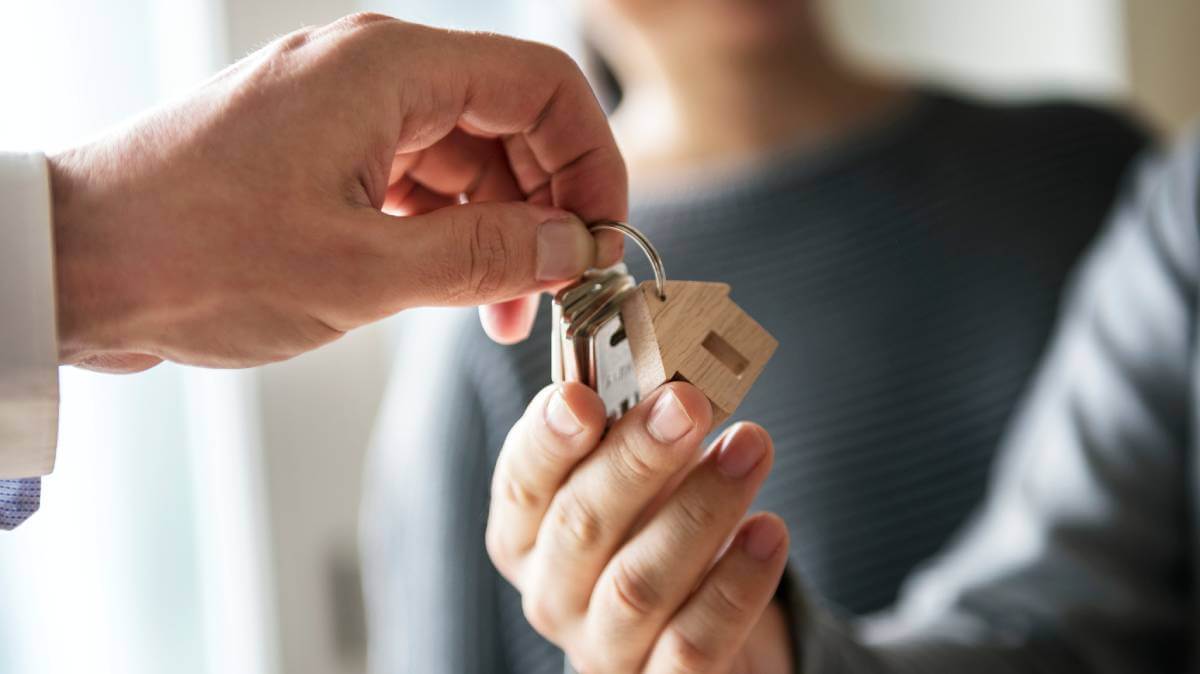Navigating rental responsibilities can be a headache for both landlords and tenants. So, it’s important to understand exactly who is responsible for which tasks when it comes to looking after a rental property.
When it comes to gardens, security, repairs and more, who is responsible?
Security
Landlords are responsible for ensuring that rental property security standards are met. Security requirements vary in different states but often relate to measures such as door locks, window locks and exterior lights. This means that landlords are also responsible for maintaining those security devices.
Tenants need to get permission from the landlord if they want to install additional security measures, and they would then be responsible for the upkeep.
Pest control
The landlord is responsible for presenting the property to a tenant in a habitable, pest-free state and the tenant is then legally required to keep the property clean.
If an infestation occurs, sorting it out is often down to who is responsible for the outbreak. However, proving who caused an infestation can be incredibly difficult.
Most acts state that the tenant must take reasonable care of the premises and keep the premises reasonably clean. If uncleanliness or pets result in a pest infestation then they may be liable.
Typically, landlords are almost always responsible for termites/white ants, regardless of when or how the outbreak occurred.
Smoke alarms
Most states and territories require smoke alarms complying with Australian Standards to be fitted in all rental properties and in accordance with the Building Code of Australia. So the landlord is responsible for supplying the alarms, installing them, replacing the batteries at the start of each tenancy and maintaining them in general.
Tenants, on the other hand, are responsible for cleaning and monthly testing of the smoke alarms. They must also replace batteries in battery-powered smoke alarms (except in South Australia where landlords are responsible unless otherwise stated in the tenancy agreement).
The tenant must notify the landlord if there are problems with the smoke alarm so that repairs can be carried out or the alarm replaced as soon as possible.
Repairs and maintenance
The landlord is generally responsible for organising any repairs or maintenance around the rental property, including plumbing, electrical appliances and air conditioners. Plus, they must comply with building, health and safety laws.
In terms of emergency repairs, the landlord should attend to these within the relevant legislation time frames.
Meanwhile, the tenant is expected to take reasonable care of the property and to let the landlord know of any urgent things that need fixing in order to prevent further loss. They will also need to replace any light globes, dust and clean any windows or cobwebs, and adequately ventilate the property to guard against the growth of mould.
Air conditioning
While some states (such as Victoria and Tasmania) require heating to be provided in rental properties, there is no such requirement for landlords to provide air conditioning.
If a landlord does provide air conditioning, then they will typically be responsible for its general maintenance such as servicing and repairs, while the tenant is accountable for cleaning the air filters.
Broken appliances
When it comes to repairing or replacing broken appliances, the responsibility rests with whoever owns it.
If the landlord has supplied a refrigerator, stove/oven, dishwasher, clothes washer, clothes dryer or microwave, he or she will be responsible for keeping it in working order, either in terms of repair or replacement.
Tenants who own their own appliances such as vacuum cleaners, dishwashers or washing machines, however, are fully responsible for their repair or replacement in the event that they break down.
Gardens
Gardens are often a source of heated debates between landlords and tenants, due to misunderstandings about who should take care of them.
To avoid any confusion, the lease agreement should clearly state who (landlord or tenant) is responsible for which aspects of upkeep. Tenants are usually responsible for general garden maintenance, such as mowing the lawn, raking leaves, trimming hedges, weeding, watering and keeping the garden clean.
Tenants also have a responsibility to report any issues to the landlord or property manager. Issues include potential blockages or water leaks in the guttering, an insect infestation of the plants, flooding of the yard, or plants withering for an unknown reason.
On the other hand, it’s the landlord’s job to take care of any major gardening works or repairs, including landscaping, fixing reticulation and large tree trimmings.
Plumbing
When it comes to plumbing, the landlord is responsible for both the installation and maintenance of the plumbing and fixtures at the property, in addition to being obligated to undertake repairs and rectifications within legislated time frames in the event of a plumbing emergency or substantial problem.
Meanwhile, the tenant is responsible for notifying the landlord of any issues that are detected or have the potential to occur – and for paying for repairs that are caused by something he or she has done or failed to do.
Are you a tenant or a landlord? Do you know who is responsible for what when it comes to the property? Let us know in the comments section below.
Also read: Five top tips for being a happier renter

